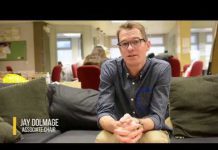The University of Waterloo and eight other Canadian universities have facilitated dozens of research partnerships with Chinese military scholars, many of whom concealed their armed forces connections. This forces the question, are we unintentionally aiding China in modernizing their military capabilities?
The Globe and Mail discovered Chinese defense scientists have been enrolling at Canadian universities as graduate students. This research is mutually beneficial for Canadian and Chinese science and engineering advancements, ranging from drones and secure communications to satellite image processing. Canada is now the third-largest global destination for research collaboration by the Chinese People’s Liberation Army (PLA), according to a report published by the Australian Strategic Policy Institute. The report states that since 2006, 687 academic papers have been co-authored by Canadian researchers and Chinese military scholars. Of the 10 leading universities in these joint ventures, three are Canadian: the University of Waterloo, the University of Toronto, and McGill University.
These Canadian universities lay the responsibility of arbitrating the admittance of foreign researchers on the federal government.
Matthew Grant, UW’s director of media relations, told The Globe and Mail, “Most organizations, including universities, cannot make assessments on issues of national security. If the government of Canada provides us advice on national-security matters, we act on that advice.”
The Globe and Mail investigated university protocols aimed at limiting technology transfer to potential military competitors of Canada and its allies, but none of the responding schools currently have ethics policies for this purpose. The University of Waterloo is faced with a question: Will we vet and cull our international scholarly collaborations at an institutional level to avoid aiding non-ally nations’ militaries? Or will we leave these concerns to the federal governments?
Nipissing University professor Haiben Zhu warned, “banning collaboration with Chinese military researchers will definitely make Canadian scholars lose the shared human resource that can contribute to their related research in Canada.”
Although some Chinese military scholars are forthcoming with their ties to Chinese defense, others obscure their affiliations or leave them unmentioned, making their practices more suspect and indicating they may be stealing technology.
One commonly listed affiliation by PLA researchers is to “Zhengzhou Information Science and Technology Institute,” which is a cover used in more than 1300 published peer-reviewed articles. Upon an in-depth investigation by Alex Joske, writer of the Australian Report, the institution doesn’t appear to exist.
In another example, two Chinese native researchers published a 2017 paper with UW’s Jonathan Li on advanced satellite image analysis. While they stated they were with the “State Key Laboratory of Geo-Information Engineering” and the “Xi’an Institute of Surveying and Mapping,” online Chinese documents revealed they were associated with Unit 61363, the Survey and Mapping Information Technology Group of the People’s Liberation Army. They’ve been said to be senior researchers in the unit.
All this comes to light in parallel with the inauguration of UW’s Strategic University Partnership with (non-military school) the Hong Kong Polytechnic University (PolyU).
The two universities signed a Memorandum of Understanding and an Implementation Agreement, in November, as a major milestone toward founding the Global Centre for Ocular Research and Development (CORD). CORD will operate under the umbrella of the Waterloo Biomedical Research and Innovation Node (WBRIN) in Hong Kong.
CORD will work with leaders in ocular and vision science and create commercial applications out of their research in aging eyes, sight-saving technologies, and the eye as a window to the brain.
While this partnership seems innocuous and beneficial (PolyU is rated 106th worldwide by the 2019 QS World University Rankings, UW is ranked 163th by the same scale), Feridun Hamdullahpur, president and vice chancellor of the University of Waterloo, and all of us who are concerned about our school’s reputation and our country, should at least be informed about this clandestine pattern.
Is there a need for universities to separate from non-ally military scholars, or is this up to Canada’s federal government?






























